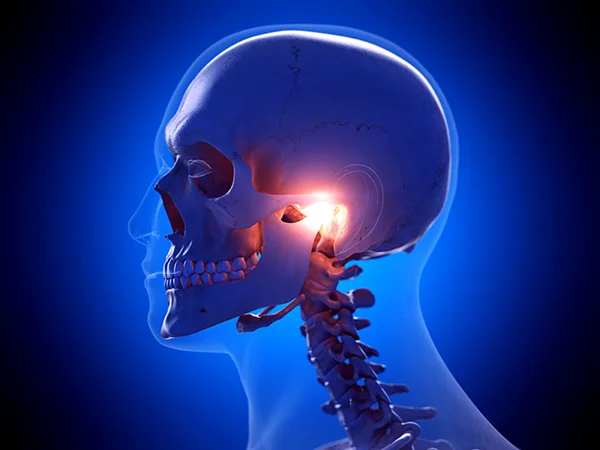Should You Surgically Correct Your Overbite?
Posted on 8/15/2024 by Young Jun DDS MD FACS |
 Do you ever feel self-conscious about your smile? Maybe you notice that your upper teeth protrude significantly over your lower teeth, creating an "overbite." This common condition can affect your oral health and self-confidence. But did you know that surgical correction may be an option? Do you ever feel self-conscious about your smile? Maybe you notice that your upper teeth protrude significantly over your lower teeth, creating an "overbite." This common condition can affect your oral health and self-confidence. But did you know that surgical correction may be an option?
While restoring your smile is an important consideration, it's crucial to understand both the benefits and potential drawbacks of overbite surgery. In this article, we'll dive into the details, empowering you to make an informed decision about your oral care.
What is an Overbite and Why Does it Matter?
An overbite occurs when your upper front teeth overlap the lower front teeth by more than 2-3 millimeters. This can be caused by various factors, including genetics, jaw development, and oral habits like thumb sucking.
While a slight overbite is usually harmless, a significant overbite can lead to several problems:
| • |
Difficulty Chewing: An overbite can make it challenging to bite and chew food properly, leading to digestive issues and discomfort. |
| • |
Speech Impediments: Overbites can affect your pronunciation, making it difficult to articulate certain sounds clearly. |
| • |
Jaw Pain and TMJ Disorders: The pressure created by an overbite can strain the jaw joint, causing pain and discomfort. In severe cases, it can even lead to temporomandibular joint (TMJ) disorders. |
| • |
Increased Risk of Tooth Decay and Gum Disease: Overlapping teeth can make it difficult to clean properly, increasing the risk of cavities and gum disease. |
| • |
Cosmetic Concerns: Many people with overbites feel self-conscious about their appearance, which can impact their self-esteem and social interactions. |
Surgical Correction: A Potential Solution
If you're struggling with the consequences of a significant overbite, surgical correction may be a viable option. Overbite surgery, also known as orthognathic surgery, aims to reposition the jaw bones to achieve proper alignment and bite. This can improve your oral health, function, and aesthetics.
Weighing the Pros and Cons
Like any surgical procedure, overbite correction comes with both potential benefits and drawbacks. Here's a breakdown to help you understand:
Benefits:
| • |
Improved Oral Health: Proper alignment can make it easier to clean your teeth and reduce the risk of cavities and gum disease. |
| • |
Enhanced Function: Improved bite and chewing ability can enhance digestion and comfort. |
| • |
Pain Relief: Repositioning the jaw can alleviate pain associated with TMJ disorders. |
| • |
Improved Speech: Clearer pronunciation and articulation. |
| • |
Increased Confidence: A more aesthetically pleasing smile can boost self-esteem and social confidence. |
Drawbacks:
| • |
Surgery: The procedure requires invasive surgery with potential risks and complications. |
| • |
Recovery Time: Expect several weeks of recovery with potential discomfort and swelling. |
| • |
Cost: Overbite surgery can be expensive, and insurance coverage may vary. |
| • |
Limited Long-Term Studies: While short-term outcomes are often positive, long-term studies on the effectiveness of overbite surgery are limited. |
Making the Right Decision for You
Ultimately, the decision to undergo overbite surgery is a personal one. Carefully weigh the potential benefits and drawbacks, considering your individual needs and goals. Discuss your concerns with an experienced oral surgeon who can evaluate your specific case and provide personalized recommendations.
Remember, restoring your smile goes beyond aesthetics. Overbite surgery can improve your oral health, function, and overall well-being. By understanding the options and making an informed decision, you can take a significant step towards a healthier and more confident you.
|
|